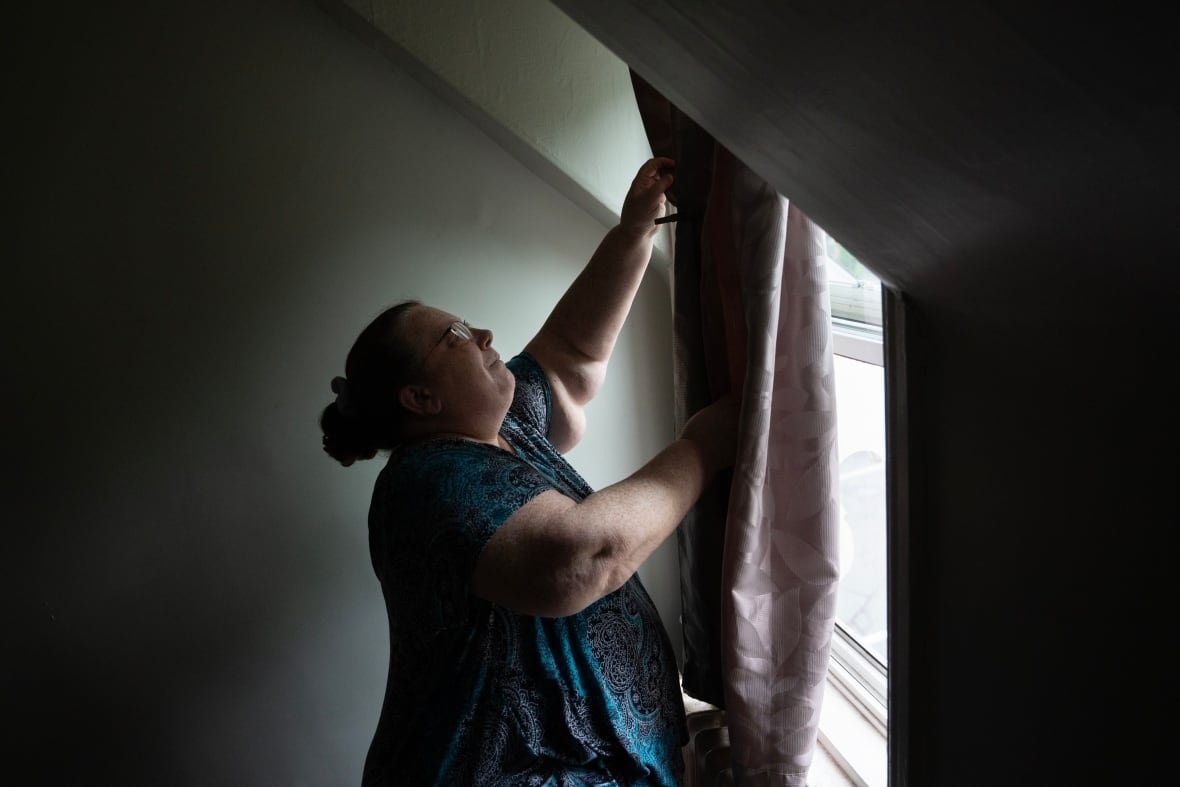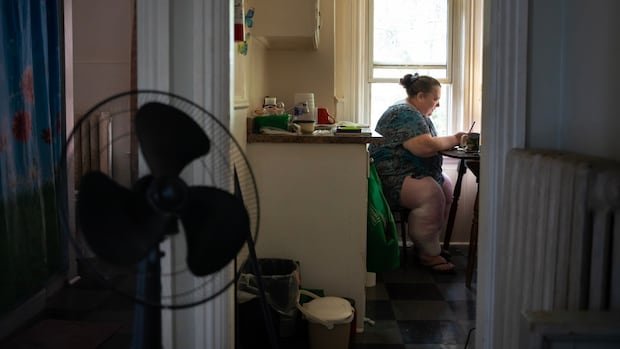Sandra Walsh, a resident of New Glasgow, N.S., faced difficulty breathing in her apartment during the hot July temperatures in Nova Scotia. Despite her health condition and pleas, she has been unsuccessful in securing a government-funded air conditioner to alleviate her struggles with the high humidity affecting her breathing due to a progressive lung disease. Walsh, who is on social assistance, expressed her frustration at the lack of support, as she cannot afford a $300 air conditioner without compromising her budget for essential needs like food and medications.
Walsh disclosed that she has repeatedly requested assistance for an air conditioner from her income assistance caseworker since 2020 without success, highlighting the challenges faced by low-income individuals with health conditions in accessing cooling solutions. The issue of the “right to cooling” has gained attention nationwide, with advocates emphasizing the necessity of air conditioning units to prevent health complications and proposing broader initiatives such as public cooling centers.
‘Right to cooling’
Rental advocacy groups underscore the importance of air conditioning for health and well-being, citing cases like that of Julie Leggett in New Glasgow, who successfully appealed for government-funded air conditioning based on her chronic pain condition. However, the policy of Nova Scotia’s Department of Social Development remains unchanged, refusing to cover the cost of air conditioners for low-income individuals with health issues.

The department suggested that individuals facing health risks exacerbated by extreme heat could seek assistance from local charities or organizations like St. Vincent de Paul. Notably, Efficiency Nova Scotia offers support for landlords to acquire heat pumps for affordable housing, although such options may not always be accessible to those living in poverty.
‘It is very, very expensive for me’
Marie Lourdes Garnier, a 75-year-old resident of Ottawa, emphasized the need for provincial governments to assist low-income renters in purchasing air conditioners. Despite experiencing stifling heat in her apartment during a recent heatwave, she is ineligible for certain government programs due to her pension status.
In Ontario, individuals on income assistance can apply for air conditioners through specific programs, while those with disabilities have avenues for support. However, Garnier, facing financial constraints, stressed the critical nature of access to cooling solutions for vulnerable populations.
Advocacy efforts by groups like ACORN have revealed the challenges low-income individuals face in acquiring air conditioning units, with many reporting adverse health effects from prolonged exposure to indoor heat. The increasing number of visits to emergency departments for heat-related issues underscores the urgency of addressing cooling needs among vulnerable populations.
Solutions other than AC
While air conditioners are vital for some low-income renters, experts suggest alternative solutions to mitigate indoor heat, such as using window shades and fans. These simple measures can significantly lower indoor temperatures, offering relief without the need for costly cooling systems.
In conclusion, the push for accessible cooling solutions for low-income individuals with health conditions remains a pressing issue, necessitating collaborative efforts from governments, organizations, and communities to ensure the well-being of vulnerable populations during extreme heat events.
Tag: rewrite-complete

